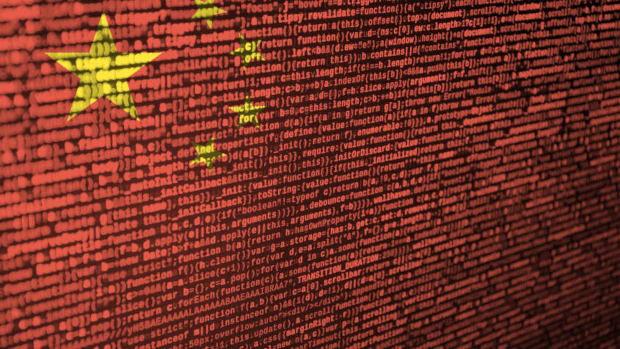Top Stories
China Proposes Urgent Global AI Governance Framework Amid Tensions

URGENT UPDATE: China has just proposed a groundbreaking framework for global governance of artificial intelligence (AI), ramping up tensions with the United States. During a speech at the global AI conference in Shanghai on July 30, 2025, Premier Li Qiang emphasized the urgent need for international consensus amidst a chaotic landscape of fragmented AI regulations.
Li’s appeal for cooperation comes on the heels of the U.S. unveiling its own ambitious plans to dominate the AI sector, a clear indication of the escalating rivalry between the two superpowers. Although Li did not directly mention the U.S., his remarks addressed ongoing trade disputes, particularly concerning restrictions on the export of advanced semiconductors critical for AI development.
The race for AI supremacy has intensified, with both nations fiercely competing for technological leadership. China, which boasts over 5,000 AI companies, has poured an astonishing $209 billion (€180 billion) into AI through government venture capital from 2013 to 2023. While U.S. private investments still lead, China’s rapid advancements are evident in the surge of generative AI patents and the emergence of innovative start-ups like DeepSeek and Moonshot.
Concerns surrounding AI’s potential risks—such as misinformation, deepfakes, and cybersecurity threats—are growing. ASEAN Secretary-General Kao Kim Hourn highlighted the critical need for robust governance to address these challenges. Meanwhile, former Google CEO Eric Schmidt called for collaborative efforts between the U.S. and China to ensure a stable future where humans retain control over AI technologies.
The Shanghai conference has attracted prominent figures in the field, including computer scientist Geoffrey Hinton, recognized as the ‘godfather of AI,’ and French researcher Anne Bouverot. This gathering underscores the global significance of these discussions as both nations navigate the complexities of AI regulation.
As the world watches closely, the implications of China’s proposal could reshape international AI governance, impacting global markets and technological development. The need for a unified approach to AI is more pressing than ever, with stakeholders urging swift action to address the challenges that lie ahead.
Stay tuned for updates as this story develops.
-

 Top Stories3 months ago
Top Stories3 months agoTributes Surge for 9-Year-Old Leon Briody After Cancer Battle
-

 Entertainment4 months ago
Entertainment4 months agoAimee Osbourne Joins Family for Emotional Tribute to Ozzy
-

 Politics4 months ago
Politics4 months agoDanny Healy-Rae Considers Complaint After Altercation with Garda
-

 Top Stories4 months ago
Top Stories4 months agoIreland Enjoys Summer Heat as Hurricane Erin Approaches Atlantic
-

 World5 months ago
World5 months agoHawaii Commemorates 80 Years Since Hiroshima Bombing with Ceremony
-

 Top Stories3 months ago
Top Stories3 months agoNewcastle West Woman Patricia Foley Found Safe After Urgent Search
-

 Top Stories5 months ago
Top Stories5 months agoFianna Fáil TDs Urgently Consider Maire Geoghegan-Quinn for Presidency
-

 World5 months ago
World5 months agoCouple Convicted of Murdering Two-Year-Old Grandson in Wales
-

 World5 months ago
World5 months agoGaza Aid Distribution Tragedy: 20 Killed Amid Ongoing Violence
-

 World5 months ago
World5 months agoAristocrat Constance Marten and Partner Convicted of Infant Murder
-

 Top Stories4 months ago
Top Stories4 months agoClimbing Errigal: A Must-Do Summer Adventure in Donegal
-

 Top Stories4 months ago
Top Stories4 months agoHike Donegal’s Errigal Mountain NOW for Unforgettable Summer Views








